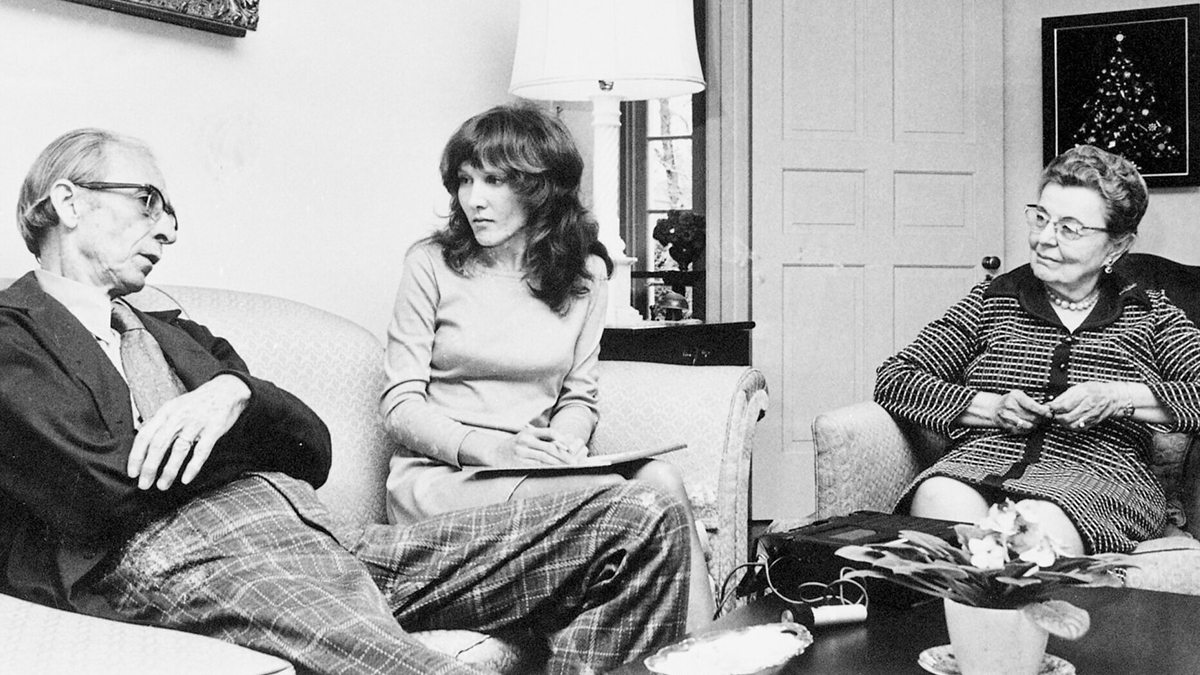Southern Oral History Program turns 50
Its interviewers record the stories of ordinary and prominent Southerners alike to better understand history.

In December 1979, Jacquelyn Dowd Hall, the founding director of the Southern Oral History Program, sat down to interview Nell Sigmon about her life in western North Carolina. As Hall explained the value of the retired hosiery worker’s story for understanding the early 20th century industrialization of the South, Sigmon interrupted her to say, “Well, of course, you don’t have to be famous for your life to be history.”
Sigmon’s words became an unofficial motto for the program founded in 1973-74 to collect the stories of people from across North Carolina and the South to better understand the history of the state, region and nation.
“Having an institution like UNC sending people out to talk to the people of the state about their lives and affirming their historical significance is an important form of outreach for the University,” said Hall, now Julia Cherry Spruill Professor Emerita in the College of Arts and Sciences’ history department.
On April 5 and 6, the Center for the Study of the American South will hold a celebration to commemorate its 30-year anniversary and the 50-year anniversary of the Southern Oral History Program, which joined the center 20 years after its founding.
The mission of the Southern Oral History Program, according to director Seth Kotch, is to include the stories of ordinary Southerners alongside those of prominent figures in our understanding of history.
“When we hear a story about a general, we want to know what his foot soldiers thought about him. Or when we hear a story about a president, we want to know what his interns thought,” Kotch said. “We’re the ones who talk to the interns and the foot soldiers.”
The interviews conducted by students in the program illuminate topics such as the Civil Rights Movement, the women’s rights movement, and the history of Southern medicine. Interviews are archived within the Southern Historical Collection in the Wilson Special Collections Library and available digitally for scholars across the world to draw on for research and teaching. The recordings are also available to the public, some of whom search for interviews with their own family members. Students have gone on to apply the skills they learned in the program in their careers as scholars, journalists, public historians, and leaders of their own oral history efforts.
“It’s important for a public university to be outward facing, to engage with our state, and to be curious about how local history can inform us about the history of the nation,” said Hooper Schultz, a Carolina doctoral candidate and SOHP field scholar. “As the flagship public university in North Carolina, it’s our mandate to tell the story of the state and to provide research that is going to matter to the majority of people in our state.”
After 50 years, the mission of the SOHP remains focused on elevating the voices of both ordinary Southerners and of prominent individuals and incorporating both perspectives into our understanding of history.
“Every interview we do is evidence that our history is a great ocean made up of little drops,” said Kotch. “There might be huge warships sailing on top of it that are catching our eye, but what’s actually meaningful about the ocean is the water.”







